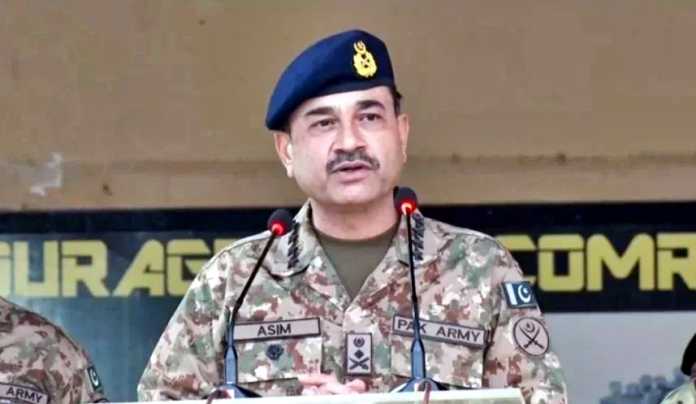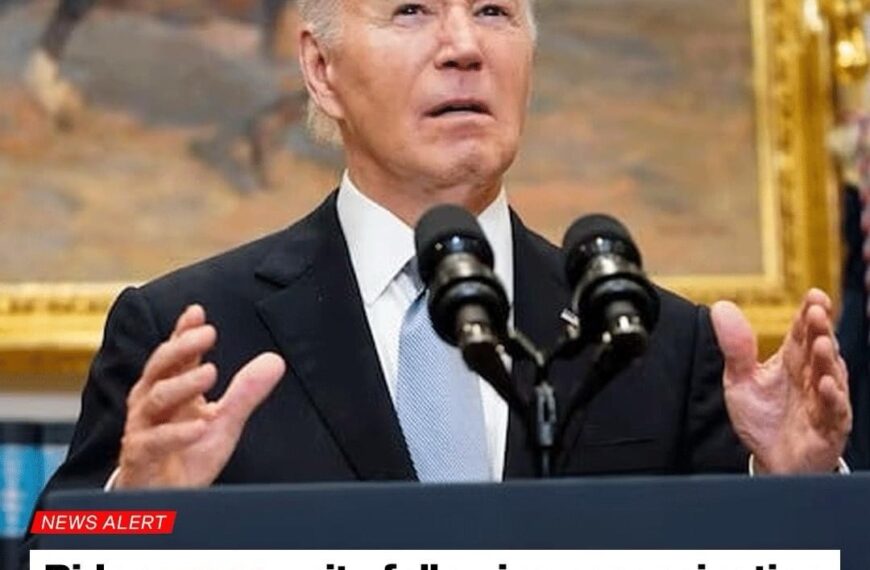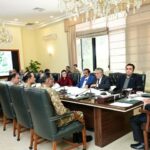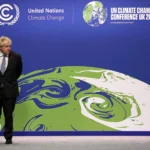The military’s top brass on Friday expressed concern at what it said was “unwarranted criticism by some quarters and deliberate misrepresentation” of Operation Azm-i-Istehkam.
The government announced the operation last month after a meeting of the Central Apex Committee of National Action Plan, vowing to unleash the full force of the country’s military, diplomatic, legislative, and socio-economic arsenal to decisively defeat terrorism and extremism.
Pakistan has witnessed an uptick in terror activities in the past year, especially in Khyber Pakhtunkhwa and Balochistan after the banned militant Tehreek-i-Taliban Pakistan ended its ceasefire with the government in November 2022.
Azm-i-Istehkam is the latest in a series of counterterrorism operations launched by the Pakistan Army since the mid-2000s. More recent operations include Zarb-i-Azb, launched in 2014 by Gen Raheel Sharif to combat militants in North Waziristan, and Raddul Fasaad, initiated in 2017 under Gen Qamar Javed Bajwa to eliminate what was then described as “residual terrorist threats” in the country.
But, the announcement was met by full-throated criticism from opposition parties, including the PTI, Jamiat Ulema-i-Islam-Fazl and Awami National Party — both inside Parliament and outside — with the KP chief minister even denying that any such thing was discussed with him during the apex committee meeting last week.
The intense opposition had prompted the government to clarify that the campaign to be launched under the banner of Azm-i-Istehkam would not be a kinetic large-scale military operation, nor would it entail the mass displacement of the local population. The government has also announced it is consulting allies to convene an All Parties Conference on the issue.
A press release issued today by the Inter Services Public Relations (ISPR) said the 265th Corps Commanders’ Conference (CCC), held at Rawalpindi’s General Headquarters under Chief of Army Staff (COAS) General Asim Munir, undertook a comprehensive review of the country’s internal and external security situation and had a detailed discussion on Azm-i-Istehkam’s various aspects.
The ISPR said the senior army huddle “noted with concern the unwarranted criticism by some quarters and deliberate misrepresentation of the vision, only for furthering their vested interests”.
It added that the operation was aimed at “harnessing the national counter-terrorism efforts in a synchronised manner to dismantle the nexus of terrorism and illegal spectrum in the country for enduring stability and economic prosperity”.
The CCC’s participants affirmed that the military leadership was “cognisant of the full spectrum of the challenges and resolved to shoulder its constitutionally mandated responsibilities with support of the resilient people of Pakistan”
The attendees also stressed that the “onslaught of politically motivated digital terrorism, unleashed by conspirators, duly abetted by their foreign cohorts against state institutions” was meant to induce “despondency in the nation and sow discord through peddling of blatant lies, fake news and propaganda”.
However, the ISPR said that the military and the nation were “fully aware of all such machinations and stand united and committed in defeating the notorious designs of the enemies of Pakistan”.
COAS Munir expressed “full satisfaction on army’s commitment to national security” and stressed upon maintaining “high standards of professionalism and operational preparedness”.
“Pakistan Army has always been fully prepared to thwart all internal and external challenges and play its due role in the stability and prosperity of Pakistan, regardless of the challenges posed,” the ISPR quoted the army chief as saying.
In other matters, the military moot also reiterated the continuation of its full support of ongoing efforts in uplifting socioeconomic growth and “wholeheartedly assisting” the government in curbing illegal activities that hampered investor confidence, economic stability and growth.
The CCC participants also deliberated upon the regional security situation, especially Afghanistan, and reaffirmed their commitment to regional peace and security.
The forum also expressed solidarity with Kashmiris and Palestinians, condemning the “serious human rights violations, war crimes and genocide being perpetrated in Kashmir and Gaza”.











